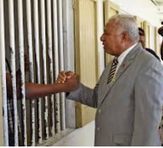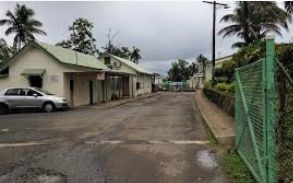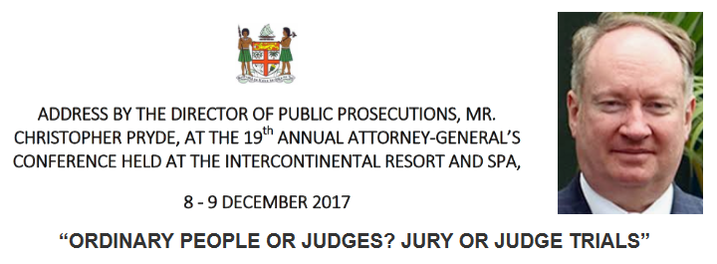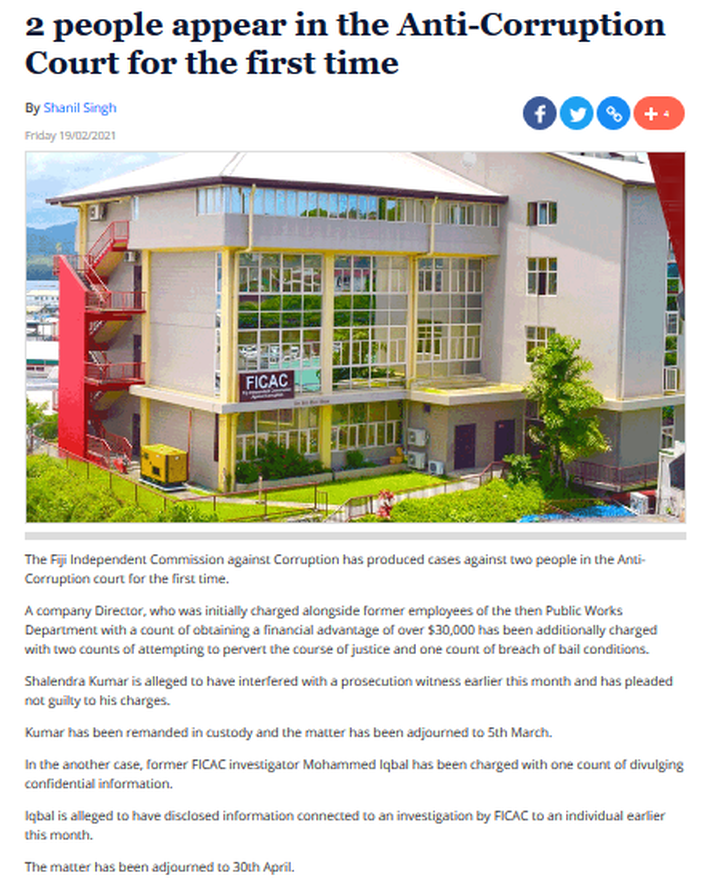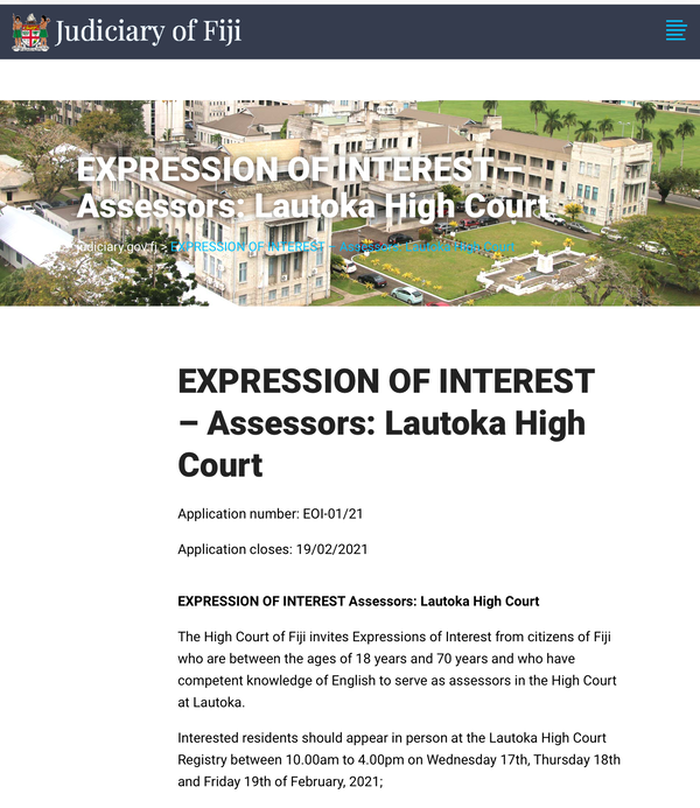The Public Lunatic Asylum Ordinance of 1884 was legislated to 'care for the maintenance of lunatics and idiots'
ANTI-colonialist Aiyaz Khaiyum claimed that the Assessor System in Fiji was a relic of colonialism. If so, will this mentally challenged and egotistic retard of a bully also get rid of the ST GILES PYSCHIATRIC HOSPITAL - established as Fiji's Public Lunatic Asylum in 1884. Many Indian coolies were classified as MAD and locked up when, in reality, they were victims of destruction and displacement caused by the colonial indenture system. The native Fijians suffered similar fate. The British colonial administration outlawed their secret societies and cannibalism but still feared their sorcery of drua ni kau and other traditional ancestral beliefs. Like British colonial administrators of the late 19th century, perception of madness continued into the 20th Century. Larry Dinger, former US Ambassador (2005-2008) to Fiji, observed that
“ A psychiatrist would have a field day with Bainimarama”. The only way to remove these two political lunatics is to vote them out of power in 2022 but we don't think with six, possibly seven, Opposition parties, that is possible. The political lunatics will take charge of the asylum-Fiji, again
Fijileaks: In 1980, our Founding Editor-in-Chief, as a young court reporter, covered some of Fiji's major criminal trials for the old Fiji Sun and observed that the defendant's family members, friends, and the public present in the court gallery, generally accepted the verdict of guilty or not guilty, even in cases where the judges overruled the assessors verdicts. There was reluctant acceptance that the defendant got a fair trial. Even when presiding trial judges sided with the assessors, prosecuting officers like Anthony Gates, then Chief Legal Officer in the DDP's office, would confide to our Editor-in-Chief over grog bowl in the office that it was a fair acquittal. Meanwhile, it is quite evident that Aiyaz Khaiyum rushed through the Anti-Assessors Bill and had it passed on 11 February, when the Judicial Department was still advertising for assessors to sit in the Lautoka High Court, and the deadline for application was Friday 19 February 2021. We expressed our interest, to test it out, and received a reply as follows:
"Please be advised that this vacancy is now cancelled due to the recent Assessors Bill passed in parliament."
Meanwhile, we reproduce the Director of Public Prosecution's speech at the Attorney-General's Conference in 2017:
Click below to read full speech
https://odpp.com.fj/wp-content/uploads/2017/12/DPPs-Speech-AGs-Conference-The-Assessor-System-in-Fiji_8.12.17.pdf
GRAHAM DAVIS (GRUBHSEET, 18 FEBRUARY 2021):
"And while the Attorney General may have the numbers in the parliament to mess with our institutions, he has no right to impose his will unilaterally with the support of the Prime Minister. For me, it is the final straw, the final break with the Bainimarama government in which I have now lost all confidence."
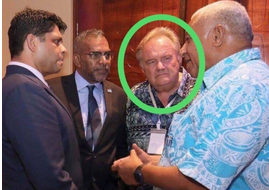
BILL NO.2 OF 2021 (ABOLITION OF ASSESSORS)
The abolition of assessors also provoked a strong response from the Fiji Law Society. In its open letter to the AG and members of parliament, the Society described it as “a profound change in, and the dismantling of, a key part of the administration of criminal justice in Fiji”. Assessors, it said “are a fundamental protection of an accused person’s right to a fair trial”.
“Removing public participation from criminal justice will reduce transparency and erode public confidence. Leaving the question of guilt or innocence in serious cases to a single judge, without an accused having a choice in the matter, is neither fair nor just”, it said.
While for any member of the community, the aforementioned statement is deeply concerning, it sent the AG into a rage. And on the margins of the parliament, he attacked the Law Society as a group of individual lawyers working in league with the opposition, even though the new President of the Law Society, Wylie Clark, has no overt political affiliation – so far as I know – and no record of partisan political statements. Unsurprisingly, a counter argument in relation to the issue of corruption courts came in the form of a public statement from FICAC. There is no way of knowing whether FICAC was instructed to issue that statement or took it upon itself to enter the political fray. But the mere fact that it said anything at all has reinforced concerns about its independence because this is a debate in which the Acting Chief Justice, Kamal Kumar, and the Director of Public Prosecutions, Christopher Pryde, have been noticeably absent.
25 years ago, in 1994, a Commission of Enquiry on the Fiji Courts was set up by the government of the then prime minister, Sitiveni Rabuka. It was headed by a distinguished Australian-born New Zealand judge, Sir David Beattie, who had been Governor-General of New Zealand. After extensive consultations with the legal profession and other interested parties, the Beattie Report recommended that the assessor system should be retained. Yet in a matter of hours last week, something that had been a key part of the administration of justice in Fiji since the 19th century – was abolished unilaterally by Aiyaz Sayed-Khaiyum.
Fast forward 25 years later and we know what the current DPP, Christopher Pryde, thinks from a speech he gave to the annual AG’s Conference in December 2017. A link to the address is still on the DPP’s website. In front of both the AG and the Prime Minister, Mr Pryde concluded that “Fiji’s assessor system has operated well for 125 years and should continue to do so. It is cost effective, it guards against elitism, it keeps the community engaged and it promotes democracy”. As unambiguous as it gets. So was the DPP consulted before the unilateral abolition of the assessor system? Was the Acting Chief Justice consulted? These are questions the public is entitled to know. Because an independent prosecution arm and an independent judiciary are cornerstones of our democracy. And while the Attorney General may have the numbers in the parliament to mess with our institutions, he has no right to impose his will unilaterally with the support of the Prime Minister. For me, it is the final straw, the final break with the Bainimarama government in which I have now lost all confidence.
The abolition of assessors also provoked a strong response from the Fiji Law Society. In its open letter to the AG and members of parliament, the Society described it as “a profound change in, and the dismantling of, a key part of the administration of criminal justice in Fiji”. Assessors, it said “are a fundamental protection of an accused person’s right to a fair trial”.
“Removing public participation from criminal justice will reduce transparency and erode public confidence. Leaving the question of guilt or innocence in serious cases to a single judge, without an accused having a choice in the matter, is neither fair nor just”, it said.
While for any member of the community, the aforementioned statement is deeply concerning, it sent the AG into a rage. And on the margins of the parliament, he attacked the Law Society as a group of individual lawyers working in league with the opposition, even though the new President of the Law Society, Wylie Clark, has no overt political affiliation – so far as I know – and no record of partisan political statements. Unsurprisingly, a counter argument in relation to the issue of corruption courts came in the form of a public statement from FICAC. There is no way of knowing whether FICAC was instructed to issue that statement or took it upon itself to enter the political fray. But the mere fact that it said anything at all has reinforced concerns about its independence because this is a debate in which the Acting Chief Justice, Kamal Kumar, and the Director of Public Prosecutions, Christopher Pryde, have been noticeably absent.
25 years ago, in 1994, a Commission of Enquiry on the Fiji Courts was set up by the government of the then prime minister, Sitiveni Rabuka. It was headed by a distinguished Australian-born New Zealand judge, Sir David Beattie, who had been Governor-General of New Zealand. After extensive consultations with the legal profession and other interested parties, the Beattie Report recommended that the assessor system should be retained. Yet in a matter of hours last week, something that had been a key part of the administration of justice in Fiji since the 19th century – was abolished unilaterally by Aiyaz Sayed-Khaiyum.
Fast forward 25 years later and we know what the current DPP, Christopher Pryde, thinks from a speech he gave to the annual AG’s Conference in December 2017. A link to the address is still on the DPP’s website. In front of both the AG and the Prime Minister, Mr Pryde concluded that “Fiji’s assessor system has operated well for 125 years and should continue to do so. It is cost effective, it guards against elitism, it keeps the community engaged and it promotes democracy”. As unambiguous as it gets. So was the DPP consulted before the unilateral abolition of the assessor system? Was the Acting Chief Justice consulted? These are questions the public is entitled to know. Because an independent prosecution arm and an independent judiciary are cornerstones of our democracy. And while the Attorney General may have the numbers in the parliament to mess with our institutions, he has no right to impose his will unilaterally with the support of the Prime Minister. For me, it is the final straw, the final break with the Bainimarama government in which I have now lost all confidence.

